#⤿ ・ ˖ · introspection
Explore tagged Tumblr posts
Text

Part of the 'Wandering Echoes' collection.
#quotes#feelings#thoughts#deep thoughts#introspection#my quotes#my writing#words#poetry quotes#writing#poetry
16K notes
·
View notes
Text
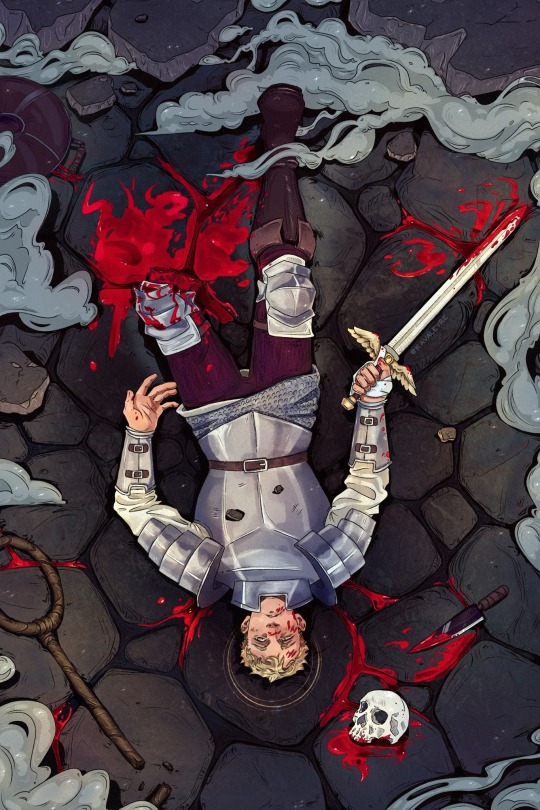
• The Hanged Man •
“Compared to what Falin went through? This is nothing.”
#my art#laios touden#dungeon meshi#delicious in dungeon#dunmeshi laios#hanged man#falin touden#dungeon meshi spoilers#cw blood#walk it off kid walk it off#I really thought hanged man was a good choice for this moment#hanged man is all about sacrifice and introspection and intuition#and a moment of trials that lead to clarity#also when he was falling??? with the blood out of the dragons mouth???#stunning#i love him so much#the line art for this was so fast and then I colored and revolted the flats for like. 20 hours#like how it turned out in the end tho#kavaleyre
38K notes
·
View notes
Text



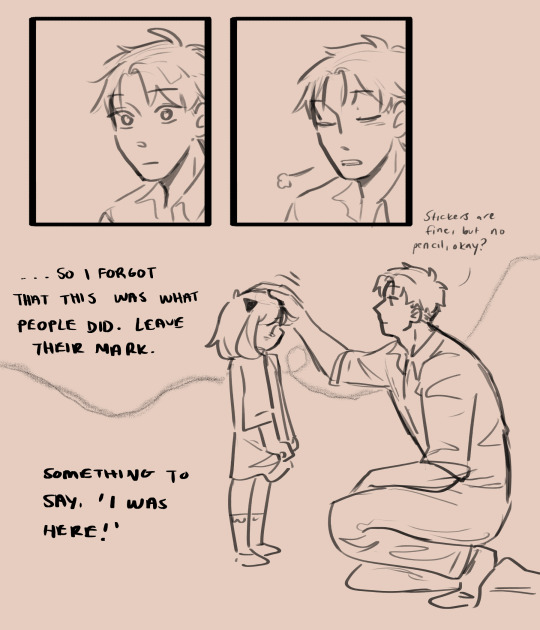
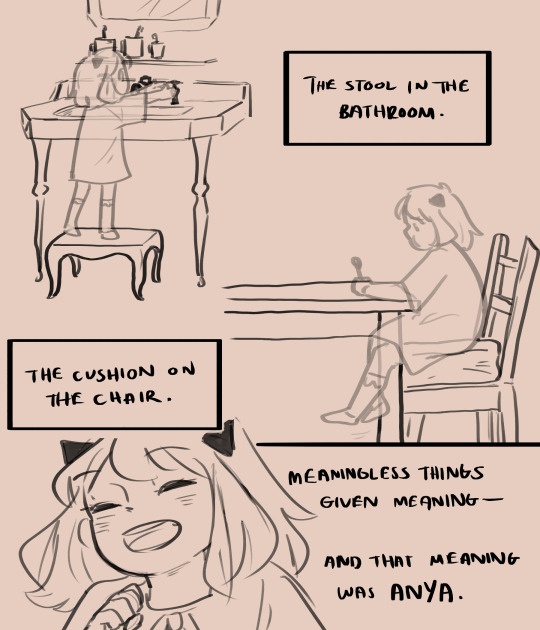


this post was the catalyst for this comic, and i was also thinking of a desi song lyric (tere dil ke sheher mein ghar mera ho gaya / in the city of your heart, my home is made) and just... hmmm.... leaving your mark.... making a house into a home..... when the marks a child inevitably leaves behind (messes, scribbles, and in this case stickers) eventually fade away as they grow older and you're left with the memories stored in what hasn't been erased....
im not verbalizing it very well but catch my drift?
#ive been very much into the introspective / character analysis type comics recently#so they always end up a little heavy LOL#to be fair tho i was gonna make it angsty but i didnt so. youre welcome <3#spy x family#my art#loid forger#sxf#anya forger#sxf loid#sxf anya
16K notes
·
View notes
Text


Uncertain feelings in uncertain times after 5 months of being unemployed with no end in sight
21K notes
·
View notes
Text

Happy one year anniversary to In Stars and Time!
#ISAT#in stars and time#siffrin#loop#I truly mean it when I say that this was the best game I have played since Disco Elysium.#It pulls off some of the best examples of Ludonarritive Harmony in a video game...possibly ever?#Not to mention just...wow. What a great story. What a tale of twists and introspection. What a tale about the need for home and connection#I know many of you have trusted me before with media recommendations. Trust me one more time.#Do you want to experience the torment of being in a timeloop? And *still* have fun and feel like your time is being respected?#PLAY IN STARS AND TIME!#Do you yearn for complex characters and love unravelling mysteries? PLAY IN STARS AND TIME!!!!#Please heed the content warnings; I took them a little too lightly on my playthrough! They are there for a reason! Don't be like me!#This game means a lot to me and so many others. On the small chance the dev sees this (they are on tumblr after all):#Thank you so much for all your hard work in creating this game and seeing the project through.#It has been a year for us fans but many years for you. So thank you!#I hope it has been a joyful year for you! Watching as people descend into shrieks of agony from playing your game.#It's good! It made me vomit blood. I had so much fun! I felt like I was torturing the protagonist when I played it. I loved it! I cried.
4K notes
·
View notes
Text
Do you think of me as often as I think of you?
#life#spilled thoughts#spilled ink#spilled words#spilled writing#love#spilled poetry#star struck09#life quotes#literature#yearning hours#i miss what we were#things you’ll never hear from me#this is girlhood#hell is a teenage girl#girlhood#thought daughter#thinking out loud#this is me trying#think of me#thinking of you#introspection#introspective#writers on tumblr#writing#life is hard#life is strange#self rambles#i miss you#love quote life quotes
4K notes
·
View notes
Text
In the end, people always have a way of revealing who they are. You just have to give them the space and time to do so. No mask can be worn forever.
#feelings#writing#thoughts#words#quotes#writers on tumblr#poetry#creative writing#introspection#deep thoughts#spilled writing#spilled poetry#spilled thoughts#spilled ink#spilled words#my thoughts#life quotes#relatable quotes#relatable#quoteoftheday#self care#self love#heartfelt#inspiring words#positive mental attitude#positive thoughts#inspiring quotes#relationship#love quote
6K notes
·
View notes
Text
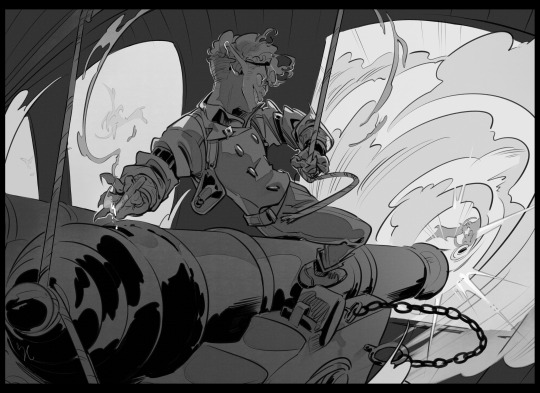
beautiful! majestic!
#riz gukgak#dimension 20#fantasy high junior year#fhjy spoilers#saw someone else's art that was so cool I blacked out for a few hours and woke up to this on my screen#foolish of me to have the thought ''oh he's smoking he's absolutely lighting these cannons with his smoke right'' and then#almost not draw it#like. cmon#bringing over my tags from another post here. I think firing those cannons was like the closest this kid's come to a moment of mindfulness#kid was doing self searching n introspection on top of those guns. eugenia got there at the breakthrough#I believe in you baby boy. rob a bank get that tuition the world is your oyster
7K notes
·
View notes
Text

by Rachel Zucker, from her collection Thunderbird
#light academia#dark academia#text#poets on tumblr#art#book quotes#poetic#poetry#literary quotes#poetry and prose#poems and poetry#writers and poets#writers on tumblr#dead poets society#literature#words words words#spilled thoughts#spilled words#spilled ink#spilled poetry#spilled writing#life quotes#feelings#writing#quotes#words#thoughts#creative writing#deep thoughts#introspection
2K notes
·
View notes
Text
every life series season has a villain, but not in the way you might think. it's always a symbol of some kind. it's not a person, but a concept, an ideal, an overarching force. that is, in every season except wild life
third life had circumstance. everything was new and hard to grasp, and no one knew what to do. the villain of third life was the world itself; think of the animal extinction, for example.
last life had brutality. both physically and mentally. it was rife with betrayal and isolation; reds had to abandon teams, and the boogeyman mechanic's paranoia forced everyone apart.
double life had love. love, and the fate it tangled itself in. it was a complex villain, but love killed them again and again, and rewarded the single person who didn't give in to it.
limited life had time. the passage of time itself was the enemy and everything was driven by that. they clawed their way to every last second, and time ate them all in the end.
secret life had the secret keeper. unyielding, unrelenting, unmoving, all-knowing. when the secret keeper forced them to do awful things, no one disobeyed, but hated it all the same.
wild life has grian. grian is representative of every wild card the world plays. he runs the command, and stops it at the end of the day. he is transparent about that. he accepts bribes for information, and unabashedly uses his knowledge to his advantage. he is Other. the players treat him the exact way they did the secret keeper; he's not a player like them this season, he's a symbol, and one of every awful thing that's happened to them at that
which is to say, wild life's villain is a symbol and an overarching force. it's just, for the first time, simultaneously a person, too. everyone else is realizing that too and are pointing their blades at grian, slowly but surely. it is SO fascinating
#save me grian introspection save me#idk i see a lot of discourse over whos the “villain” in what season and i was thinking its never so simple#so.. think piece#especially about grian's role as a Wild card figurehead#literally the first time imo that we've ever had a Player be the true villain of the whole server/series#im obsessed with him#grian#trafficblr#wild life#wild life smp#secret life#life series#third life#3rd life#last life#double life#limited life#traffic series
3K notes
·
View notes
Text

Echoes, The Murmurs of Lost Souls
#feelings#words#quotes#my feelings#my writing#thoughts#deep thoughts#introspection#writing#my thoughts#poetry
2K notes
·
View notes
Photo

Björk ~ New York (1993) by Julie Kramer ⌘
#casual style#green#photography#1993#björk#portrait#1990s#black#contemplation#julie kramer#introspective portrait
2K notes
·
View notes
Text
Stop adapting the iliad and the Odyssey into movies. You'll never succeed. Adapt them into shounen anime, as is their god given right
#look at the amount of introspection in the Odyssey and tell me it doesnt call for an animated sequence of the character turning#to the screen with an exasperated and simplified scribble face#the Odyssey#the iliad#odysseus literally rips of his clothes before fighting people#nestor constantly complains about his age#hector literally tells paris to die#aphrodite tries to pick up aeneas and drops him after getting shot#and then apollo catches him#ares gets stabbed and goes whining to zeus who calls him a disappointment
29K notes
·
View notes
Text
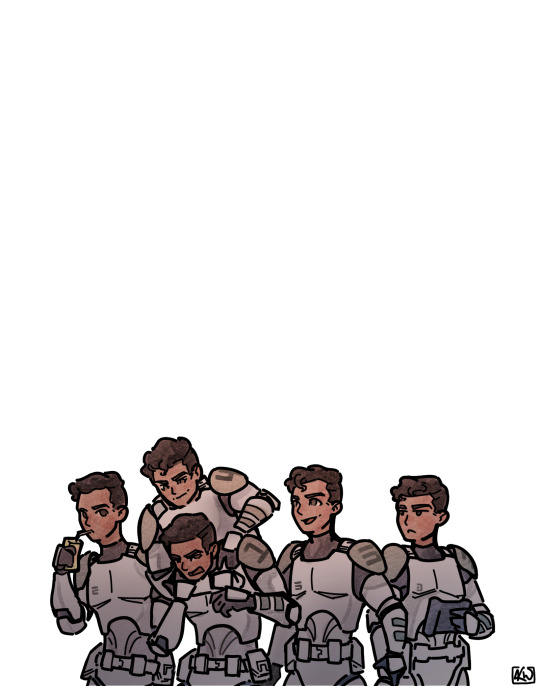
usghsduhfiaofh
#ugh drawing this was SUCH a bad idea but im not gonna touch it any more#im so tired but hey these guys#have fun#i dont wanna look at it anymore#wHerES thE EMOTION#maybe i need to do some introspection....#star wars#the clone wars#arc trooper fives#arc trooper echo#clone trooper hevy#clone trooper droidbait#clone trooper cutup#domino squad#and now i have... 5 hours to cram in as much sleep as my insomniac ass can handle#but its ok because domino squad!
1K notes
·
View notes
Text
I fear the sadness will consume me alive one day.
#life#love#relationship#spilled ink#spilled thoughts#spilled words#spilled writing#spilled poetry#love quotes#life quotes#sadnees#sad poetry#sadgirl#sad thoughts#sad poem#sad quotes#hurtquotes#hurtful#life is hard#life is unfair#life is pain#thinking out loud#literature#writers on tumblr#writing#star struck09#deep thoughts#thought daughter#introspection#introspective
3K notes
·
View notes